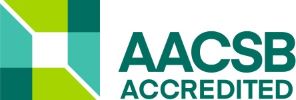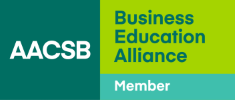Marketing BA (Hons)
 Marketing.jpg)
UCAS Code: N500|Duration: 3 years|Full Time|Hope Park
UCAS Campus Code: L46
Accredited|Work placement opportunities|International students can apply|Study Abroad opportunities
About the course
*This course is for 2024 entry only
Marketing is one of the most challenging, fast-moving and exciting disciplines in the world of business. Our Marketing degree has a theoretical focus that is combined with practical examples of how companies apply the theory on a day-to-day basis, meaning that what you learn is not only academically sound but also rooted in the realities of today’s dynamic marketplace.
During your degree, you will be provided with the key skills and knowledge that will enable you to understand the marketing context, marketing research and the discipline’s central role to business success, while allowing you to reflect on the moral and ethical implications of marketing behaviour. The ever advancing fields of Social Media and Digital Marketing run through the Marketing curriculum as central themes and allow you to reflect on the many challenges and opportunities that these technological and cultural changes provide. We believe your ability to gain meaningful employment after you graduate is really important, so there is a strong focus on helping you to develop your employability skills.
The degree is accredited by the Chartered Institute of Marketing (CIM) under their CIM Accredited Degree programme. This means that our graduates will receive significant exemptions from the institute’s professional membership examinations. It has been designed so that you learn from research-active staff while at the same time being mentored and given masterclasses by industry leaders. Marketing focuses on a wide range of organisations, from SMEs to global multinational organisations and across all sectors. Studying such a comprehensive view of the marketing world prepares you for a career in organisations of any type and size.
Course structure
Teaching on this degree is structured into lectures, where all students are taught together, and smaller groups of seminars and tutorials. The lectures will provide you with a general framework in Marketing, whilst the seminar activities and discussions, help your understanding and application of the subject. In tutorial sessions you will not only develop your understanding of Marketing further, but at times, work together in student-led activities. Seminars and tutorials are also designed to enhance your employability skills.
If you study Marketing as a Single Honours degree, in your first year of study there are approximately 12 teaching hours each week, which reduces to approximately 10 teaching hours in your second and third years. If you study Marketing as a Combined Honours degree, in your first year of study there are approximately 6 teaching hours each week, which reduces to 5 teaching hours in your second and third years. On top of teaching hours, you are also expected to spend approximately 15 hours studying independently each week. This could include additional research and reading, attendance at guest lectures and industry related events, preparation or completion of set tasks for taught sessions, revision for exams, work for your assessments and participation in group work.
Accreditation
Liverpool Hope Business School is an accredited member of AACSB International - The Association to Advance Collegiate Schools of Business. For over a century, AACSB Accreditation has been synonymous with the highest standards in business education. Accredited schools have successfully undergone a rigorous review process conducted by their peers in the business education community, ensuring that they have the resources, credentials, and commitment needed to provide students with a first-rate, future-focused business education.

The Chartered Institute of Marketing (CIM) is the leading professional body for marketers worldwide and exists to develop the marketing profession, maintain professional standards and improve the skills of marketing practitioners. Liverpool Hope University has joined forces with CIM to give students the opportunity to gain professional qualifications through the CIM Accredited Degree. CIM qualifications are highly sought after by employers, and their content is reflected in our own degrees which ensures we are equipping students with the best opportunities for a successful marketing career.
Assessment and feedback
You will have a number of assessments throughout your studies, including multiple choice exams, group presentations and reports, individual academic reports, and written exams. The assessments have been designed to develop your knowledge and skills in multiple ways and provide experience of gaining key skills needed in the competitive world of business. Written feedback will be given to you within four working weeks of the deadline for submission of coursework.
If you would like feedback on your written exams, you can request this from your tutors once exam results have been released. You are also encouraged to make an appointment to personally discuss your feedback with your tutor.
Curriculum overview
Please note topics marked with a * are studied by Single Honours students only.
Year One
Introduction to Marketing
You will be introduced to the underlying principles of Marketing and the relationship between Marketing and the global business context. Study of this relationship can help to contextualise Marketing theory and practice and further help you understand the dynamics of contemporary marketing management, as you explore concepts such as the marketing mix, segmentation, targeting and positioning, and consumer behaviour.
You will also be introduced to the broader underlying principles of Business Management. You will study four component parts (4Cs) to understanding what a business is (the Company), how it interacts with its environment (the Context), how it serves its customers (the Customers) and how it manages its competition (the Competition). Additionally, in your first year, you will gain an appreciation of fundamental business structures and functions and the management challenges posed by the contemporary and ever complex business environment.
Topics typically studied in this year are:
- The Marketing Mix: (7 Ps: Product, Price, Place, Promotion, People, Process, Physical Evidence)
- Customer segmentation
- Introduction to Business Management Theory & Practice (Major and Single hons)
- Economics
- Analysing Business and Marketing environments
- Introduction to Organisational Behaviour
- Understanding Buyer Behaviour*
- Introduction to Quantitative Research Methods*
In order for you to gain a clear understanding of the applicability of the theoretical marketing knowledge from the very beginning of the academic year, industry speakers and up-to-date organisational applications of marketing will be part of the curriculum. This allows clear links between theory and practice to be made from the very start of your studies.
Year Two
Explorations in Marketing
Building on your first year, the curriculum in year two explores key issues and marketing concepts in greater depth, advancing your knowledge and understanding to an intermediate level. You will become adept at the use of a number of marketing tools such as the Marketing Plan, Ansoff’s Growth Matrix, The Boston Consultant Group Grid, as well as statistical tools such as SPSS.
On successful completion of this year, you will have developed a critical knowledge and understanding of marketing communications, stakeholder marketing, marketing information and research. In particular, you will have gained a critical understanding of what shapes consumers buying behaviour and how companies harness and exploit these forces to create and capture value from their customers.
Single Honours students will develop a deeper understanding of social media and critically examine the increasingly current area of social marketing and how marketing can be used to influence and change behaviour of both individuals and companies. The areas of retail and relationship marketing will also be investigated.
What you will study:
Social Media
This examines the growing importance of social media marketing. It focuses on social communities and the role that influencers play in affecting consumers’ decisions. The other three zones of social media are explored: social entertainment; social publishing; social commerce.
Marketing Planning
Market planning is the process of organising and defining the marketing aims of a company and employing strategies and tactics to achieve them. Students will study this crucial area and will examine the complexities of producing a marketing plan – one of a marketing professional’s key tools.
Consumer Behaviour
This studies the activities associated with the purchase, use and disposal of goods and services. The various types of buying behaviour are studied along with the internal and external influences that affect the behaviour, preferences and brand loyalty of consumers.
Integrated Marketing Communications (IMC)
Students examine how organisations seek to create and effectively communicate a consistent message across a range of communication tools and channels: advertising; PR; direct marketing,; sales promotions; and personal selling. Effective IMC campaigns of prominent organisations are critically analysed.
Marketing Research
The year ends with the study of marketing research techniques. Students examine how organisations collect and analyse data in order to make effective, evidence-based decisions. Concepts such as sampling, measurement of attitude, and questionnaire design are studied.
*If you study Marketing as a Single Honours degree, you will also study:
Social Marketing
Students will study this fast-growing discipline, which uses principles from commercial marketing and the social sciences to change people’s behaviour for the social good and to benefit both individuals and wider society. Campaigns such as “5 A Day” and “Don’t Drink and Drive” are critically analysed.
Sales Management
A number of inter-related concepts such as the motivation of a salesforce, sales forecasting and its relationship with budget setting, and the evaluation of salesforce performance are analysed.
Relationship Marketing
Students end the year exploring how and why organisations aim to attract, nurture and retain loyal customer bases. Issues such as CRM, data mining, and customer lifetime value are examined.
Year Three
Advanced Studies in Marketing
Building on previous years, the curriculum in the final year investigates key advances in the academic and professional marketing literature. You will deepen your knowledge and understanding of contemporary issues facing marketers today, as well as increase your knowledge of the leading edge theory and practice being developed for the future.
Examples include the move towards smart living and smart cities, mobile marketing, Big data, developments in conceptualisation of brands, usage and social media influence, and neuro-marketing. Single Honours students also consider how societal and business innovations such as 3D imaging and drone technology will impact on marketing and communications. In order to apply knowledge and skills developed to date on the degree and to allow you to explore an area of marketing that is of particular interest to you, a marketing research project is undertaken. This requires you to become an active researcher, applying the marketing research theory covered in the second year and exploring in detail a specific area of marketing.
What you will study:
Quantitative and Qualitative Research Methods
In preparation for the integrated dissertation, students study the various quantitative and qualitative data analysis methods. The various hypothesis testing methods are explored, along with an examination of such techniques as content and thematic analysis.
New Product Development
Organisations expend often huge amounts of time and money on ensuring that new products are adopted successfully in the marketplace and provide a suitable return on investment. Students will analyse the many reasons why new products may fail and how organisations can implement systematic methods to ensure that their new products have a better chance of being successful. Patents, trademarks and copyright are also explored as ways of protecting intellectual property rights and ensuring that new products are protected as they enter the market and grow their revenue streams.
Brand Management
This block traces the evolution of branding from proto-brands in ancient times through its various incarnations to the brand equity models of Keller Aakers. It then examines the recently adopted belief that brands are co-created and we, as consumers, play a major role in making and breaking a brand.
Services Marketing
Students will explore a number of strategies for designing and managing effective and efficient service processes. The concept of Customer Delight is also examined and when the reverse of this occurs, organisations need to be able to effectively recover the service processes. Students will analyse the various methods of service recovery.
*If you study Marketing as a Single Honours degree, you will also study:
International Marketing
This block considers the motivations and triggers for a company deciding to internationalise and enter new markets. It explores the issues that such a company faces and ways that they can mitigate the risks involved with such issues. It also explores modes of entry into new international markets and the degree to which it needs to adopt its products and marketing to be able to operate effectively in the new market.
Destination Marketing
Students will examine how Destination Marketing Organisations use marketing techniques to promote the benefits of specific cities, regions and countries to travellers before they make their travel choices.
Sensorial Marketing
This block of study examines how retailers can use the five senses to elevate the shopping experience of consumers. We will examine the benefits of creating a hedonic shopping experience, where appropriate, to drive customer footfall and purchasing decisions.
Neuro Marketing
This contemporary area of study explores how our often unconscious physiological reactions to stimuli can drive our buying behaviour. It examines how techniques such as neuro-imaging, eye tracking and facial coding can be utilised by brands to push our “buy button.”
Entry requirements
2024 Entry
Clearing is now open, over this period we can offer some flexibility on our entry requirements for courses that still have vacancies.
We are also offering a Foundation Year on many of our courses for students who have the ability and enthusiasm to study for a degree, but do not yet have the qualification level to enter directly into our degree programmes.
Whether you already have your results or are waiting for them please call us to discuss the options available to you: 0151 291 3636
Careers
Past graduates of our Marketing degree have gone on to have careers such as Marketing and Communications Coordinator, Marketing Assistant, Marketing Manager, Assistant Commercial Product Manager, and Advice Centre Manager.
The Marketing degree has been designed so progression can be made to Masters or Doctoral studies. Graduates who successfully gain a degree can apply to become full members of the Chartered Institute of Marketing (CIM) or the Marketing Research Society.
A number of other professional bodies will also accept holders of a first degree that includes Marketing on to their qualifications at an advanced level, including the Chartered Management Institute’s Diploma in Management Consultancy and the Institute of Chartered Secretaries and Administrators’ (ICSA) Postgraduate Certificate in Charity Management.
Enhancement opportunities
Work Placement Opportunities
The Marketing team works very closely with the University’s Business Gateway to source robust and exciting student placement opportunities, along with a wide range of company visits and other events where you come face-to-face with professional practitioners.
Hope Solutions
Since 2016, the Marketing team has facilitated a wide range of student-led live marketing consultancies. A number of local companies have benefited from the support of small groups of Business School students who have addressed real business issues and helped the companies to improve performance. Projects have included social media campaigns, communications enhancements and competitor audits.
SALA
The Service and Leadership Award (SALA) is offered as an extra-curricular programme involving service-based experiences, development of leadership potential and equipping you for a career in a rapidly changing world. It enhances your degree, it is something which is complimentary but different and which has a distinct ‘value-added’ component. Find out more on our Service and Leadership Award page.
Study Abroad
As part of your degree, you can choose to spend either a semester or a full year of study at one of our partner universities as part of our Study Abroad programme. Find out more on our Study Abroad page.
Tuition fees
The tuition fees for the 2024/25 academic year are £9,250 for full-time undergraduate courses.
If you are a student from the Isle of Man or the Channel Islands, your tuition fees will also be £9,250.
The University reserves the right to increase Home and EU Undergraduate and PGCE tuition fees in line with any inflationary or other increase authorised by the Secretary of State for future years of study.
Additional costs
On top of tuition fees, you also need to consider the cost of core textbooks, which we estimate to be around £100.
You will also need to consider the cost of your accommodation each year whilst you study at university. Visit our accommodation pages for further details about our Halls of Residence.
Scholarships
We have a range of scholarships to help with the cost of your studies. Visit our scholarships page to find out more.
International tuition fees
The International Tuition fees for 2024/25 are £12,500.
Visit our International fees page for more information.
Course combinations
This course is also available as a Combined Honours degree with the following subjects:




